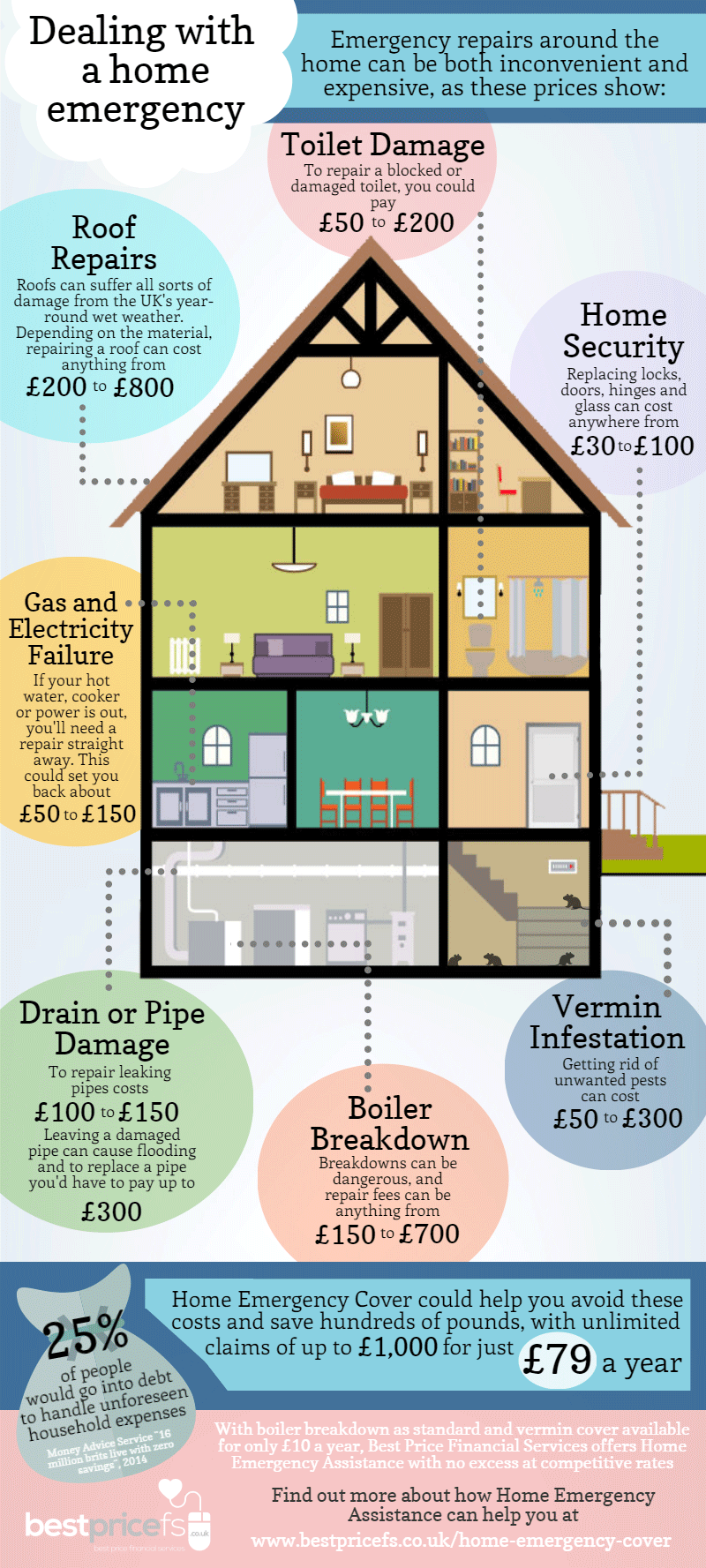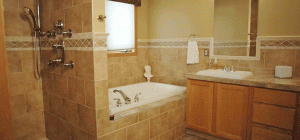Dealing with an emergency in your home can be incredibly challenging; there are not only concerns over the harmful effects on your family but also on your pets should you have any and any guests who stay with you. However, throughout the duration of your homeownership, you will likely be forced to confront a home emergency at some point, from flooding to power cuts and more. To ensure that these can be solved as quickly as possible, below is a guide to solving some of the most common issues.
1. Flooded Basement
Flooded basements can often occur due to natural weather events, such as overflowing river banks and heavy rainfall, and this can cause major problems to homeowners. You can suffer significant water damage to your furniture and possessions, for example. To find out what to do when your basement floods and how you can prevent it from flooding through the use of waterproofing, Helitech has produced a guide to help you to solve the issue of your wet basement.
2. Gas Leaks
Gas leaks are not only an inconvenience for you and the people living in your home, but they can also be incredibly dangerous. If gas leaks go undetected, they can lead to explosions and fires. Gas leaks can also cause severe medical symptoms, including dizziness and nausea. Not only this, but gas leaks can be fatal for the residents of your home. When you smell gas in or outside your property, you should switch off the supply at the mains immediately, call the emergency gas number or 911, and then leave your home to wait for help. You should also avoid lighting any flames or turning your power switches on or off.
However, this is not the only issue that can occur in your home in terms of gas, with carbon monoxide presenting a risk to the people living in your property. To make sure that you are prepared if an emergency does occur, you should install a carbon monoxide alarm, and ensure that your appliances are inspected regularly. You should also check that your home has the ventilation system that it needs in order to prevent a build-up of dangerous gases and other toxins.
3. Power Cuts
Power outages are common during the winter months when heavy wind or rain can damage overhead power lines and leave you without the electricity that modern families are so reliant upon. Power cuts can often affect the whole of your neighborhood. However, if your house has an inadequate or old electrical system, the electricity in your house alone may cease to work. To prevent this, you should have your wiring changed at least every 20 years. Although you should not attempt to perform electrical work yourself, you should find the source of the issue in your fusebox, and then wait the outage out with candles or battery-based appliances.
4. Electrical or Cooking Fire
Fires can cause a tremendous amount of damage to your home, and can even leave them beyond repair, with 1,318, 500 fires in the USA in 2018. For this reason, fire is one of the top worries for most homeowners. To prevent a fire, you should turn off appliances that are not in use, avoid using damaged appliances, maintain your equipment, be cautious while using electronics, and install a smoke detector in your home. If a fire occurs, you may try to put it out with proper emergency equipment, such as a fire blanket, but you should always put your own safety first if the fire grows.
5. Broken Window or Door
A broken window or door within your home can leave you feeling unprotected and vulnerable to crime, especially if an intruder broke it. Broken windows and doors are common home emergencies, though. Whether it was broken by a stray ball, a storm, or a loose bit of foliage, it is vital to get it fixed as soon as possible for your own peace of mind. Luckily, there are both professional and DIY methods to fix a broken window or door. In fact, you can install a replacement window pane yourself with the use of window putty. While you are waiting for professional help to arrive, you should make sure that your window is securely boarded up with plywood and film. However, you should be careful when clearing up after the breakage. You can do this safely by using a dustpan and brush or duct tape to pick up the shards of glass and then washing down the area with a mop.
6. Pest Infestations
Although you might not believe that pest infestations are an emergency, they can make your home incredibly miserable. Pest infestations can cause health issues such as asthma flare-ups, in addition to the fact that they can spread diseases, such as hantavirus in rats. To ensure that you and your family are safe, you should try to prevent pests by closing any gaps or cracks in your exterior walls and securing any home waste. If you do get an infestation, there are many humane and non-humane products on the market to help you to eradicate the pests in question, such as traps and sprays. However, you may want to call out a professional if the situation worsens. After the infestation has been solved, you should prevent any more pest-related problems in the future by closing the gap that they entered your home through, and by cleaning the surrounding area. Doing so will erase their scent and prevent other pests from entering your property.
Home emergencies can happen at any time, and they can damage your home and harm your family. To prevent emergencies, you should conduct regular maintenance on your property’s most vulnerable features, make sure that you carry out repairs as quickly as possible, and call out an inspector whenever you spot a problem. If an emergency does occur, using this guide will help you to create a plan that you can use to combat any issues that occur while keeping your family safe.









